Letter to Governor Martinez
April 2016
Governor Susana Martinez,
Recent passage of the Every Students Succeeds Act (ESSA), successor to NCLB, has afforded us the opportunity to advocate for gifted students in new ways. Specific language in the law states that Title I funds may be used to identify and serve gifted and talented students from disadvantaged backgrounds, and requires Title II funds must be used for professional development around the education of gifted students. Changes to Federal testing requirements allow for assessment of above-grade mastery, and require accountability for the performance of gifted students.
The New Mexico Association for the Gifted, NMAG, celebrates the passage of this landmark law. We recommend the State of New Mexico and local school agencies take advantage of its provisions to improve assessment and education of gifted students, teacher preparation for the gifted population, and accountability for the way schools meet gifted students’ needs.
Title I responds to the educational needs of students from disadvantaged backgrounds. Students from poverty perform significantly lower on tests of achievement but show similar levels of ability and promise. Often they go unidentified for gifted education, and have lower levels of success in advanced courses and college transition. These students’ outcomes can be significantly improved with additional educational opportunities, especially in early school years. New Mexico is a high-poverty state, where these provisions can make a large difference.
Title I funds should be targeted toward three objectives: early identification, achievement gap-closing, and successful transition to advanced coursework and college. Title I funds should be focused on early enrichment opportunities for impoverished students, closing gaps in opportunity and background knowledge so that those students can perform more like their advantaged peers throughout their K-12 education. School-wide screening would result in improved or additional identification of highly able and potentially gifted students from poverty. In later years, Title I funds may support students’ transition to advanced AP or IB courses, and successful transition to college.
Title II of ESSA recognizes and supports the need for preparation of and ongoing professional development of teachers. National standard-setting bodies like National Council for Accreditation of Teacher Education (NCATE), Center for Exceptional Children (CEC), and National Association of Gifted Children (NAGC), as well as the state of New Mexico recognize the need to specially prepare teachers of gifted. There is also a need to make all general education teachers knowledgeable about the nature, needs and appropriate strategies for gifted students.
ESSA’s Title II funds should be leveraged to improve gifted students’ experience in both gifted and general education classrooms. They should be used to ensure we have enough highly qualified gifted education teachers, to provide continuing education for teachers in current service, and to support pre-service teachers becoming knowledgeable about the needs of gifted students.
Current assessment and accountability systems have largely responded to the needs of average and struggling learners and the expectation that all students should grow toward grade-level proficiency. Since gifted students often have skill and knowledge far exceeding grade level expectations, our new state assessment protocols under ESSA should provide for assessment of above grade level performance, and thereby better account for their growth and readiness.
By measuring above-grade growth and performance, our state can better take responsibility for the growth and performance of all gifted students. Disaggregating advanced student performance can help grow equity among racial, ethnic, socioeconomic, and language subgroups. Specific reporting on the performance of gifted students can promote quality gifted programming. In addition, the presence of more above-grade items on our tests can help discover unidentified gifted students.
NMAG strongly supports the ESSA and the many ways it can be used to improve assessment and education of our gifted students. We strongly encourage the Public Education Department and local education agencies to plan for using its funds and provisions to help New Mexico’s gifted students. We look forward to future collaboration ensuring these changes to the law are adequately addressed and implemented to meet the needs of our gifted students. Please contact us at your earliest convenience so that we can schedule a meeting to begin this collaboration.
The New Mexico Association for the Gifted is a state wide, nonprofit organization advocating for gifted students.
Respectfully,
Christy Jewell-Roth, NMAG President
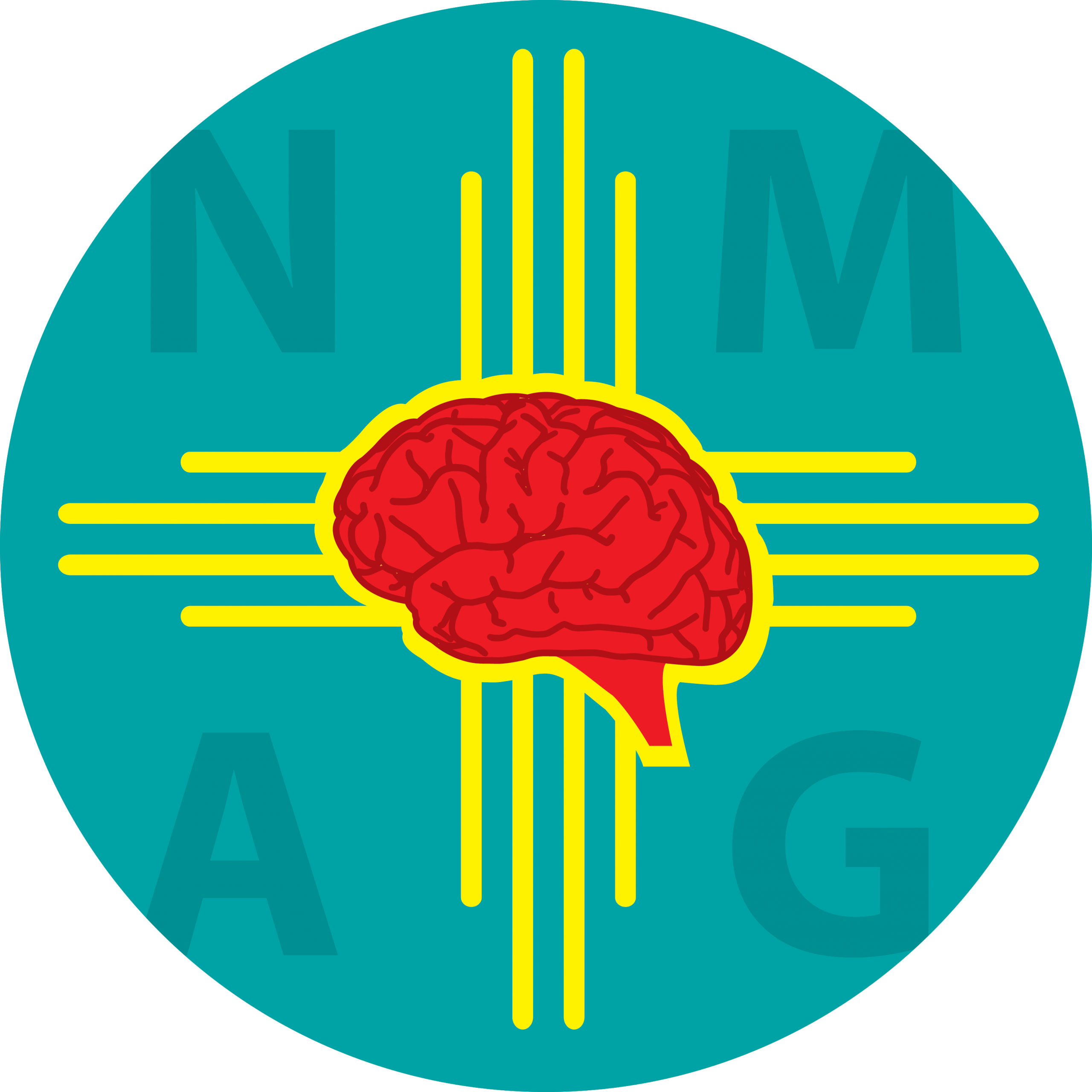
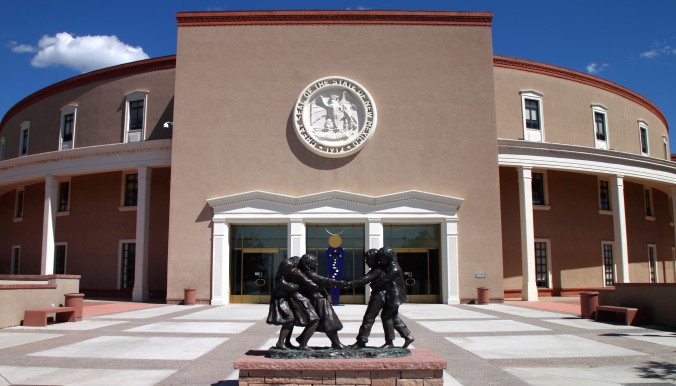
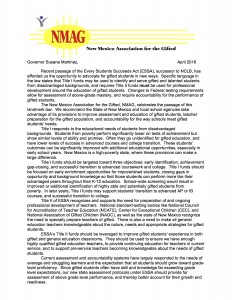
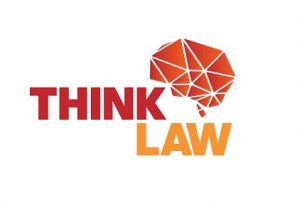


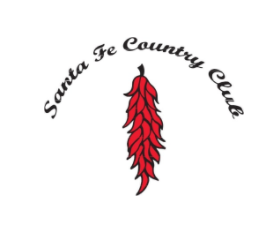
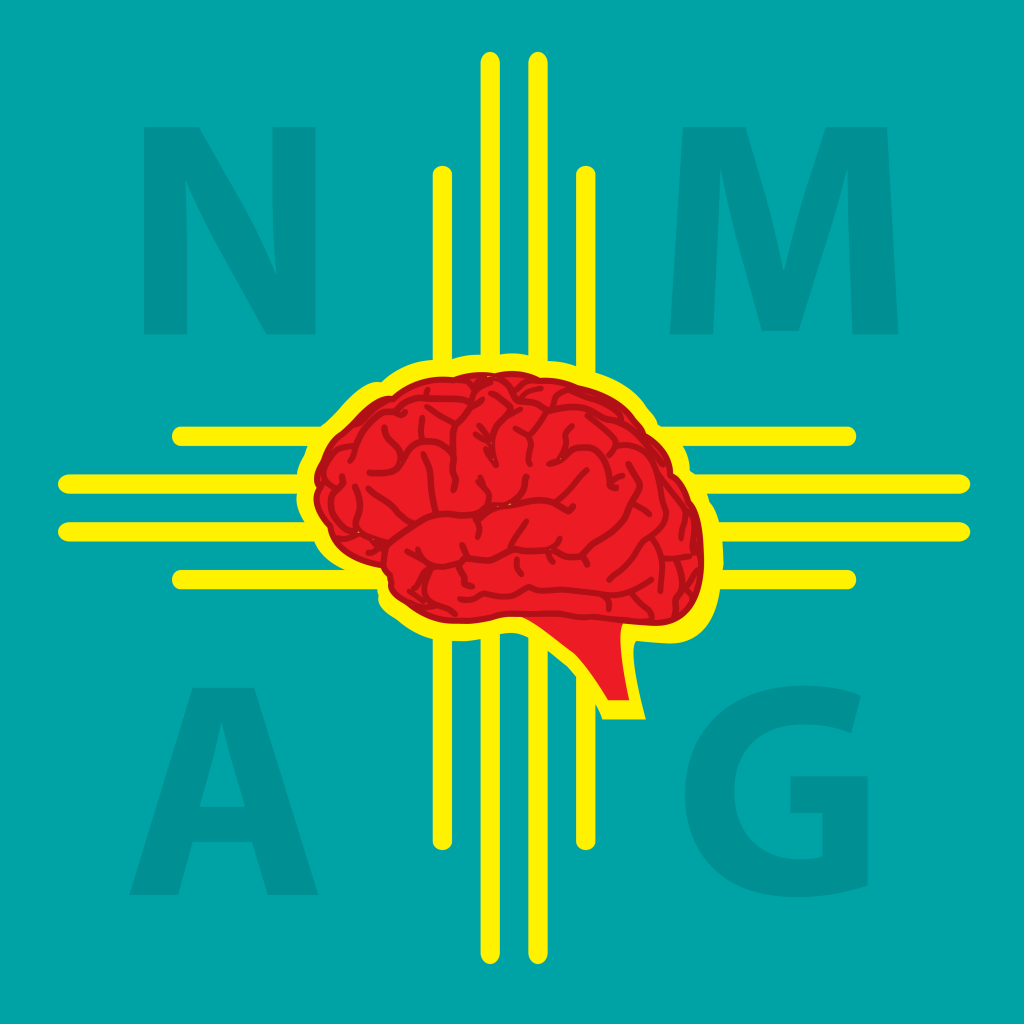
Recent Comments